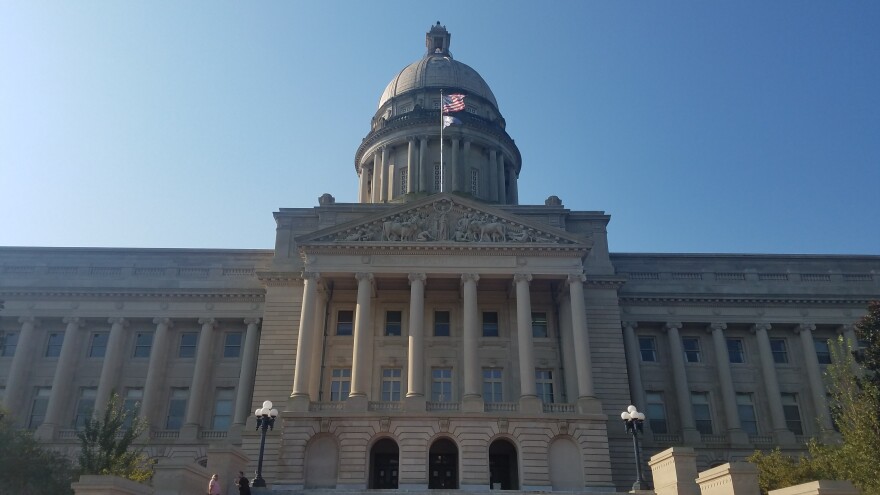With a record-breaking surplus on the books, Kentucky Republican state lawmakers are cautiously eyeing money for public education. Speaking at the Kentucky Education Summit Monday, House speaker Pro Tempore David Meade and Senate President Pro Tempore David Givens said 2022 may be the year they tackle the spending increases they envisioned before the pandemic.
“We are going to have some monies,” Givens said, a Greensburg Republican. The state boasted a record $1.1 billion budget surplus this summer at the end of the fiscal year. Forecasters say the current fiscal year’s surplus could be even greater.
Before the pandemic struck in 2020, lawmakers had planned a budget with slight pay increases for teachers and other state employees. Later, amid concern over the economic impacts of the coronavirus pandemic, the GOP-led legislature passed two conservative one-year budgets without significant new spending.
But the economy performed better than expected and the state raked in hundreds of millions more in revenue than anticipated.
“[We] don't want to get too excited, however,” Givens warned, noting the state owes millions in pension costs, which ballooned after the General Assembly failed to make the full actuarially-required payments to the Teachers Retirement System for several years after the Great Recession.
“We still have some legacy pension costs that we've got to deal with. And a substantial amount of that funding has to be dedicated to those legacy pension costs,” Givens said.
Givens is also worried about inflation.
“We don't want to be too forward leaning with building out systems that require future investments,” he said.
But he said he anticipates a “robust conversation” around teacher pay raises, investment in infrastructure and technology, while at the same time “holding some monies back for a rainy day.”
Meade, a Stanford Republican, said he’s interested in possibly increasing the state’s per-pupil allocation, which has held at $4,000 since 2019. District leaders say the state’s share of education funding has not kept up with costs and is at its lowest since at least 2008, accounting for inflation, according to the left-leaning Kentucky Center For Economic Policy.
Meade also said he was interested in permanently funding full-day kindergarten. Historically the state has only paid for a half-day of kindergarten, leaving districts and sometimes parents to pick up the rest of the cost. For this year only, lawmakers extended the funding to a full day of instruction.
New spending, however, Meade suggested, could be paired with possible cuts.
“Maybe we have too many folks in administration in some districts,” he said. “And where are we lagging in others? We need to look at those things as well.”
Meanwhile, Sen. Gerald Neal, a Louisville Democrat, urged spending increases.
“We need more money in the system. We don't need less money in the system,” he said. “We have huge problems in parts of the system, whether it's in rural, or whether it's in some of the urban schools—and it's going to take funding.”
Jefferson County Public Schools is among many districts seeking an increase in state funding.


